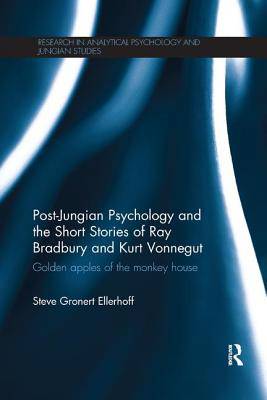
- Retrait gratuit dans votre magasin Club
- 7.000.000 titres dans notre catalogue
- Payer en toute sécurité
- Toujours un magasin près de chez vous
- Retrait gratuit dans votre magasin Club
- 7.000.0000 titres dans notre catalogue
- Payer en toute sécurité
- Toujours un magasin près de chez vous
Post-Jungian Psychology and the Short Stories of Ray Bradbury and Kurt Vonnegut
Golden Apples of the Monkey House
Steve Gronert EllerhoffDescription
In this book, Steve Gronert Ellerhoff explores short stories by Ray Bradbury and Kurt Vonnegut, written between 1943 and 1968, with a post-Jungian approach. Drawing upon archetypal theories of myth from Joseph Campbell, James Hillman and their forbearer C. G. Jung, Ellerhoff demonstrates how short fiction follows archetypal patterns that can illuminate our understanding of the authors, their times, and their culture. In practice, a post-Jungian 'mythodology' is shown to yield great insights for the literary criticism of short fiction.
Chapters in this volume carefully contextualise and historicize each story, including Bradbury and Vonnegut's earliest and most imaginatively fantastic works. The archetypal constellations shaping Vonnegut's early works are shown to be war and fragmentation, while those in Bradbury's are family and the wholeness of the sun. Analysis is complemented by the explored significance of illustrations that featured alongside the stories in their first publications. By uncovering the ways these popular writers redressed old myths in new tropes--and coined new narrative elements for hopes and fears born of their era--the book reveals a fresh method which can be applied to all imaginative short stories, increasing understanding and critical engagement.
Post-Jungian Psychology and the Short Stories of Ray Bradbury and Kurt Vonnegut is an important text for a number of fields, from Jungian and Post-Jungian studies to short story theoriesand American studies to Bradbury and Vonnegut studies. Scholars and students of literature will come away with a renewed appreciation for an archetypal approach to criticism, while the book will also be of great interest to practising depth psychologists seeking to incorporate short stories into therapy.
Spécifications
Parties prenantes
- Auteur(s) :
- Editeur:
Contenu
- Nombre de pages :
- 236
- Langue:
- Anglais
- Collection :
Caractéristiques
- EAN:
- 9780815359944
- Date de parution :
- 21-12-17
- Format:
- Livre broché
- Format numérique:
- Trade paperback (VS)
- Dimensions :
- 156 mm x 233 mm
- Poids :
- 439 g

Les avis
Nous publions uniquement les avis qui respectent les conditions requises. Consultez nos conditions pour les avis.






